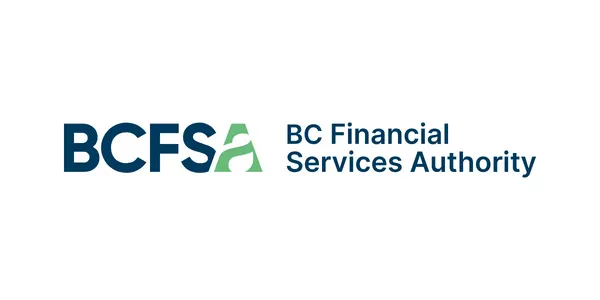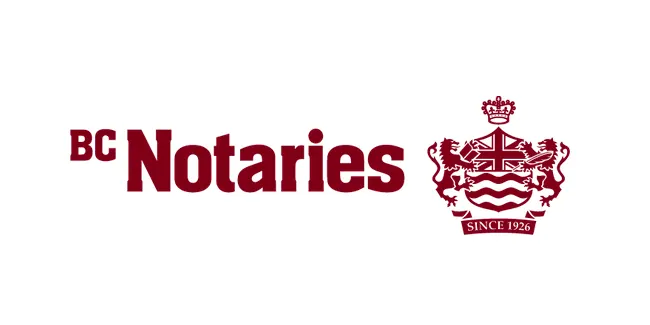
As a home seller, I can only consider offers that come in at the full asking price.
Selling a home is a huge financial decision. You want to get it right. Learn what to consider before putting that “For Sale” sign up, and the steps involved in selling your home.
There is now a cooling-off period when buying a home
As of January 1, 2023, there’s a three-day cooling-off period when buying a home in BC. We've updated the information on this page to reflect this change.
What you should know
You can sell your home yourself and save on the cost of using a real estate agent. These private sales are often referred to as “for sale by owner” or FSBO. Here are some things to consider if you decide to go this route:
You pick up the slack. You’ll have to do all the work and research to sell your home. This includes setting the selling price, arranging showings, communicating with potential buyers, negotiating offers, and dealing with the paperwork.
It’s on you to get the word out. Only licensed agents are allowed to list on multiple listing services (MLS). However, there are some brokers who will list your property on your behalf for a flat fee (rather than a commission). If you don’t want to pay an agent in any way, you can advertise your home through other channels like the newspaper, Craigslist, and social media.
There are other services you might have to pay for. A real estate agent usually arranges things like lawn signs, professional photos, producing a floor plan, and staging the home. You’ll have to take care of these services yourself.
You might not avoid paying the buyer’s agent. Expect to be approached by agents of potential buyers. They’ll try to get you to sign an agreement to pay their commission for the sale. You’re not obliged to sign anything, but you should know that most buyers in BC use agents. And unrepresented buyers may try to negotiate a lower price, knowing that you’ll be saving money by forgoing an agent.
As a seller, there are good reasons to use a real estate agent. It’s likely they’ll get you a higher price and sell your home more quickly. They’ll save you time by handling all aspects of the sale. And they can help you navigate a complex process, advising on questions such as:
What facts should I disclose?
What paperwork do I need?
What about the existing mortgage?
How can I be sure I’ll get my money?
Pick someone you trust and are comfortable with. Talk to friends, neighbours and colleagues who have recently bought or sold a home. Who did they work with and how did the experience go?
Find a licensed realtor
Under the law in BC, real estate agents must be licensed. You can use the licensee search from the BC Financial Services Authority to see if an agent is currently licensed.
If you hire a real estate agent, you’ll have to sign a “listing agreement.” This is a contract between you and your agent, setting out the terms of the arrangement you’ve agreed on.
When an agent lists your home, they are advertising it. Most agents use a multiple listing agreement. This gets them onto a database that’s widely used by other agents. It alerts a network of realtors and potential buyers to your listing.
Your agent’s duties to you
When an agent is acting only for you, they have the following duties:
undivided loyalty to you
confidentiality
to obey all your lawful instructions
to account for all the money and property you place in their hands
Paying your agent
The listing agreement should say when and how much you must pay your agent for their services. Your agent’s pay (or commission) can be a flat fee or a percentage of the sale price of the home. In BC, many agents charge 7% on the first $100,000 of the sale price, plus 2.5% on the rest. Fee arrangements will vary by location and agency. These percentages aren’t set by the law so you can try to negotiate them down.
Typically, the commission is taken from the sale proceeds of the home when the sale is completed. Your agent then shares it with the buyer’s agent. With this type of arrangement, both agents’ commissions are paid out of the sales proceeds.
If you have a mortgage on your home, you’ll need to figure out what to do with it. One option is to pay off the mortgage when you sell your home. Most mortgages have restrictions on paying out early. A “prepayment penalty,” such as three months’ worth of mortgage payments, often applies. You can also explore whether a buyer can assume (take over) your mortgage. This way you’d avoid any prepayment penalties.
Ask your lender, or check your mortgage contract, to find out the terms and conditions of your mortgage. Sometimes a lender will ignore the prepayment penalty if you agree to take out a new mortgage with them (on another home).
“Two offers to purchase came in at the same time. The first offer was $30,000 lower than our asking price. The buyer had mortgage pre-approval, and was eager to close the deal. The second offer came in at our asking price. There was no bank involved, but the buyer vaguely said he needed a few months to get his finances sorted. Of course we would have liked the extra cash, but who knew if the second offer would fall through? In the end, we negotiated a better price with the first buyer. We were happy to lock it in.”
– Paula, New Westminster, BC

If someone wants to buy your home, they’ll give you an offer to purchase. This is a written contract setting out the terms of the sale. It’s usually done with a standard form called a contract of sale and purchase.
Your realtor must bring all written offers to you for your consideration. You can choose to do any of the following:
Ignore or reject the offer.
Accept the offer as it stands. Once you and the buyer sign the offer, it’s a legally binding agreement. This means you must perform your obligations under the contract (or risk being taken to court).
Make a counteroffer. The terms a buyer proposes are all negotiable. For example, you might only be interested in an offer if the purchase price is higher. Or if the completion date is sooner. You can change a buyer’s offer and put it back to them. This is called a counteroffer. It cancels the buyer’s original offer. The risk of making a counteroffer is that the buyer can reject it and walk away altogether. You and the buyer may continue to propose counteroffers to each other, until a deal is reached.
Once you accept an offer (or either party accepts a counteroffer), the contract for purchase and sale becomes legally binding on you. Make sure you understand the legal promises you’re making. Here, we explain the standard contract of purchase and sale.
Once the contract is formed, the buyer has up to three business days to cancel it. This is called the cooling-off period. If they do change their mind, they’ll have to give you notice. And they’ll have to pay you a fee that is 0.25% of the agreed purchase price. This cooling-off period cannot be waived. (The cooling-off period does not apply to residential property that is located on leased land, sold at auction, or sold under a court order.)
If you received more than one offer
A number of real estate boards in BC now require sellers to give a “multiple offers presented” disclosure form to anyone who made an offer on the property. The form discloses the number of offers received. You don’t have to disclose the price or conditions attached to the various offers. Ask your agent whether this applies to you.
Subject clauses are conditions that must be met before a sale can happen. Buyers often include these in their offers, giving themselves time to assess certain risks before committing to the purchase. Offers are often made subject to the buyer:
getting financing (for example, a mortgage)
getting a property inspection, and being satisfied with the results
selling their home
From a seller’s perspective:
The buyer will propose a deadline for removing the subject clause. You’ll want to keep the “subject removal period” relatively short but still reasonable.
Make sure the buyer’s “subject to” clauses are specific. The law says that a person must, in “good faith,” make all reasonable efforts to remove subject clauses. It’s easier for a buyer to get out of clauses with vague or broad language.
For example, say you get an offer that’s “subject to buyer obtaining satisfactory financing.” Ideally, you should ask the buyer to put specific details or goals in the clause, such as the interest rate and principal amount the buyer is seeking to finance.
As a seller, you must tell a buyer about any material latent defects that you know about. Being dishonest about what you know can lead to problems in the future. Legal issues may arise if the new owner discovers problems that you were aware of but didn’t tell them about.
A material latent defect means a defect that can’t be detected by a reasonable inspection of the property. This includes a defect that makes the home potentially dangerous or unfit to live in. It might include a history of flooding, structural damage to the property, or any work done without permits.
Depending on the defect, the buyer may be entitled to void the contract if a latent defect is discovered that should have been disclosed. A void contract is one that can’t be enforced by law.
Typically, sellers disclose known defects to the buyer in a property disclosure statement. Learn about your obligations when telling buyers key information about the property.
When someone buys your home, all the fixtures go along with it, unless you and the buyer agree otherwise. Generally, a fixture is anything that’s attached to the home such that removing it would cause damage. The bathroom sink is an obvious example of a fixture.
Chattels on the other hand are items that you’re entitled to remove. The appliances — washer, dryer, fridge and stove — are examples of chattels. You can take these with you once you sell the home.
Defining a fixture can be difficult. You and the buyer may not agree on what is and isn’t part of the home. In the contract, list any items you wish to take with you; make it clear that they’re not included in the purchase price. Better yet, before you put the home up for sale, replace items you’d prefer to keep.
Sell your home
Figure out what your home should sell for in today’s market. You may want to contact some real estate agents who work in your area. They’ll look at your home and tell you what price they would list the home for and what they’d expect it to sell for. This service is generally free.
If you want more certainty, you can get a professional appraisal done. An appraiser will give you a value for your home based on what comparable homes in your area have sold for and what it would cost to replace yours. The cost of an appraisal is usually between $200 and $750.
Account for the costs involved
There are costs to selling your home. These include staging costs, advertising and realtor commissions. There are also costs associated with paying off your mortgage. Before you settle on a sale price, ask your realtor to prepare an estimate of the proceeds you could expect to receive on completion of the sale.
If you have a mortgage on your home, find out:
how much is owing on the mortgage
whether the buyer can assume the mortgage
if the mortgage includes a prepayment penalty
To find out these details, check your mortgage agreement and statements. Or check with your lender.
Do a title search
Ask your realtor or lawyer or notary to conduct a title search before you put your home on the market. If you find any other financial charges, you’ll need to set money aside to pay these off before you can transfer ownership.
If you hire a realtor, you’ll be asked to sign a “listing agreement.” These are often standard contracts. The realtor may not have a lot of room to negotiate terms. But pay particular attention to the following terms:
Who the realtor is representing. In BC, realtors generally can’t act for both a buyer and a seller in the same transaction. There are a few exceptions to this rule, including for property in a remote location that’s under-served by real estate agents.
The length of the agreement. Many realtors prefer that the listing agreement continue for three months, but you can choose to list your home for a shorter period. If your home hasn’t sold within that time, you can either extend the term of the listing agreement or change realtors.
The realtor’s pay. The listing agreement sets the amount of the realtor’s commission. Read your listing agreement carefully to understand the arrangement you’re agreeing to.
For more on listing agreements, see above under what you should know.
The realtor will provide you with a copy of the agreement. Keep it for future reference.
If you get an offer to purchase, review it carefully. You can choose to ignore, reject, or accept any offer, or make a counteroffer. Consider the dynamic combination of factors that each offer presents, including the following:
Purchase price. Before your home goes on the market, consider whether you’ll accept offers less than the full asking price. How low will you go?
Subject clauses. Be sure you understand the effect of any subject clauses (explained above under what you should know). There’s always the risk that a deal will fall through if a buyer doesn’t remove a subject. Would you prefer to accept an offer without any subjects? There are also risks that offers without subjects will fall through.
Financing considerations: If a potential buyer is pre-approved for a mortgage, there’s less chance of financing falling through. (Note that pre-qualifying for a mortgage is not the same as pre-approval.) Meanwhile, a larger deposit may indicate that the buyer is serious. And if the deal falls through, you won’t leave empty-handed.
Unusual arrangements. Watch out for arrangements that may put you at risk. For example, a buyer may ask you to transfer the home to them, on the agreement that they’ll pay for it in future instalments. This effectively makes you their lender. Talk to a lawyer about the risks.
Who you’re selling to. People buy property for different reasons. Sellers are often emotionally attached to their homes. Would you prefer to sell to a family who will live in the home rather than an investor?
Timing risks. Generally, sellers want to keep time frames shorter. For example, an earlier closing date may mean less chance for the deal to fall through.
Consider having a professional look over the contract
You may want to have a lawyer check the offer before you sign the contract. Your realtor can also help you assess any offers. In the end, the decision is yours.
The contract of purchase and sale will specify the completion date for the sale. This is the day that ownership of the home transfers and you receive the purchase price.
On the completion date, you will:
Sign the transfer documents. Make sure you understand what you’re signing. If you use a lawyer or notary, they should review the documents with you and explain them to you. Here's more on the documents you’ll be asked to review or sign on closing.
Receive payment in full. Your lawyer or notary will confirm that all payments you’re responsible for have been made. (This happens before you receive any proceeds from the sale.) This step involves ensuring you have no further obligations relating to the property, for example, dealing with your old mortgage.
You’ll turn over your keys on the possession date. After that you’ll no longer have access to the property. The possession date is usually a couple of days after completion.
A legal professional can help you protect your interests
A good lawyer or a notary can help protect your legal interests when selling your home. The buyer’s lawyer or notary will do most of the work. As the seller, you can expect to pay about $600-$700 in legal fees.
Common questions
It depends on the terms of your listing agreement. If you’re not sure whether you’d have to pay your realtor, re-read the listing agreement. Normally, your realtor is entitled to their commission when you accept an offer to purchase.
Under some standard listing agreements in BC, the seller is legally required to pay a commission to their agent even if the deal falls through. It’s rare that an agent will sue in these circumstances, but it has happened! Examples of where you may still have to pay a commission include the following:
you accept an offer to purchase, and the transaction later falls through
you accept an offer to purchase, and the buyer rescinds their offer during the cooling-off period
you sell the home yourself while the listing agreement is active
the home sells after the listing agreement has expired, and the realtor had previously shown the home to the buyer or was the “effective cause of the sale”
Be prepared
The best way to avoid nasty surprises is to read your listing agreement carefully. If there’s anything you don’t understand, ask your agent to explain it. You can always ask them if you’d have to pay them even if they don’t sell your home. A lawyer can help you avoid situations where you have to pay a commission even where the realtor doesn’t sell your home.
If your home is your principal residence, you typically won’t have to pay tax on any profit (capital gain) you make when you sell it. This is called the principal residence exemption.
The exemption might not fully apply if at any time while you owned the home it was not your principal residence. A lawyer or tax accountant can advise on whether the principal residence tax exemption applies to you.
Who can help

BC Financial Services Authority Guide to Selling a Home
The body that licenses realtors in BC offers a guide to selling a home.

Lawyer Referral Service
Helps you connect with a lawyer for a complimentary 15-minute consult to see if you want to hire them.

BC Legal Directory
Search for a lawyer by community or legal issue. From the Canadian Bar Association, BC Branch.



